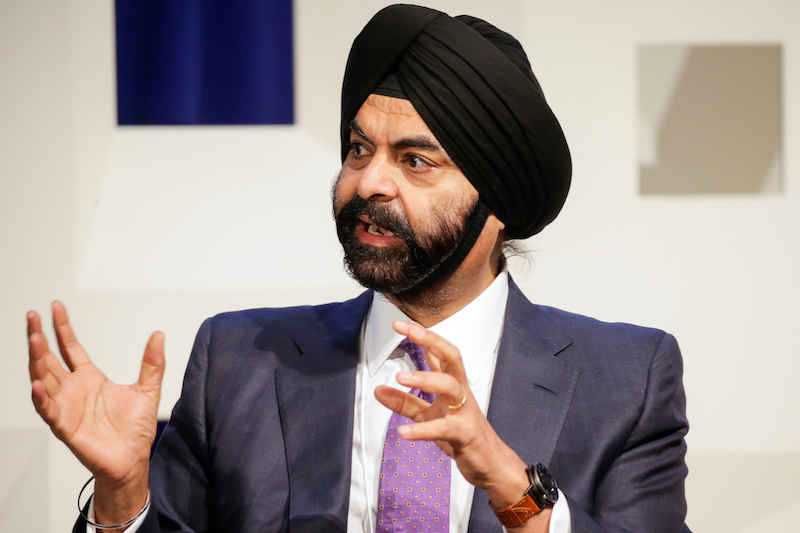Leaders of dozens of the world’s biggest cities have appealed to multilateral development banks (MDBs) for funding to help them to adapt to and counter global warming.
Mayors from groups such as the C40 Cities, the City Climate Finance Leadership Alliance and the Global Covenant of Mayors for Climate and Energy (GCOM) are attending the World Bank Spring Meetings, currently being held in Washington DC, to press for an increase urban climate finance.
They want reform of the MDB system. They say cities suffer a funding gap because of outdated approaches from MDBs and the private sector that make it hard for cities to access capital at competitive cost and national government policies that prevent cities from raising taxes or borrow.
ALSO SEE: Study Shows Half of China’s Big Cities Sinking, Rising Seas Risk
A report last year said that cities only receive about 7-8% of global finance funding, despite the fact more than half the world’s population lives in urban centres, which account for more than 70% of global carbon emissions.
They want multilateral development banks to provide scaled-up concessional funding, technical support, policy advice and for urban climate finance to be included in their strategies.
Key cities in Asia and the Pacific calling for a better deal include Dhaka, Jakarta, Makati and Quezon, Seoul, Sydney, Hobart and Tokyo. Dozens of others in the Middle East, Africa and the Americas share these goals.
Electric buses, better drain systems, ‘green’ buildings
Abigail Binay, the Mayor of Makati in the Philippines, said her city needs more funding for green public transport systems such as electric buses, sustainable drainage and flood management systems to help mitigate flooding, plus the transition to energy-efficient public buildings (retrofitting them with better tech to save energy and cut emissions).
“These projects have already been started, but can be implemented faster citywide,” she said. “They are just some examples of projects that are vital for urban sustainability that frequently face obstacles in funding due to their scale, cost and the extended timeframe for realizing their benefits.”
Binay urged MDBs to develop financial instruments specifically designed for cities, including finance to help them recover from climate-induced loss and damage.
Gregor Robertson, a former Vancouver Mayor, who is part of the cities delegation in the US capital, said: “We need 2024 to be a breakthrough year on city climate finance, particularly as MDBs, governments and investors worldwide are increasingly recognising the importance of accelerating urban climate action.
“While we want MDBs to lend directly to cities, the national governments have an essential role. They must create supportive legal, regulatory, and policy frameworks for cities to access and manage financial resources to tackle the climate crisis.
“That is why initiatives that promote multi-level cooperation such as CHAMP (Coalition for High Ambition Multilevel Partnerships for Climate Action) are crucial. National governments should not only allocate more funds for cities to implement climate action, but also work with mayors to encourage and facilitate improved financial flows from MDBs and the private sector to cities.”
UN urging MDBs, G20 nations to ‘step up finance’
Simon Stiell, executive secretary of the UN Framework Convention on Climate Change (UNFCCC) has also urged the World Bank, plus financial institutions and G20 nations to “step up the pace” of climate finance.
But World Bank president Ajay Banga warned this month that multilateral banks on their own cannot provide enough funding to counter global warming.
“No amount of money from just multilateral banks can change this. That’s not the size of these balance sheets,” Banga said, noting that it was able to provide about $120 billion in lending last year.
That is way under the $2.4 trillion that some economists believe must be spent every year to prevent 1.5C of warming by 2030.
The World Bank is working closely with countries such as Brazil that will host climate change conferences in coming years. It is encouraging nations to submit 10-year strategies for curbing greenhouse gases such as methane, while boosting its lending capacity and reducing the time of loan disbursement.
At COP28 last year, the World Bank committed itself to proving 45% of its lending to climate initiatives by this year, and Banga has said he wants to increase that goal even further.
- Jim Pollard
























